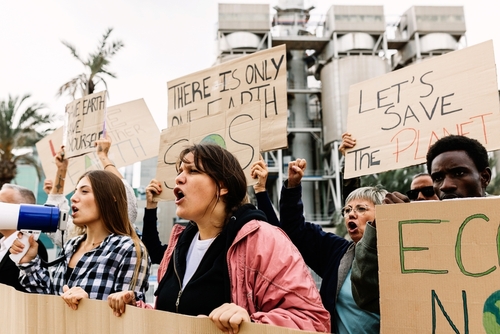In a recent act of defiance, climate activists targeted Stonehenge, one of the world's most iconic historical sites, by spraying it with orange powder. This incident is part of a broader series of protests aimed at demanding an immediate end to fossil fuel use. The activists, associated with the group Just Stop Oil, have gained notoriety for their disruptive tactics aimed at drawing attention to climate change issues.
The vandalism occurred during the summer solstice celebrations, a time when Stonehenge attracts numerous visitors. The activists claimed their actions were necessary to highlight the urgent need to transition away from fossil fuels to combat climate change. They argue that drastic measures are required to prevent further environmental degradation and to push governments towards more aggressive climate policies.
Just stop oil protestors damage Stonehenge 😭
pic.twitter.com/HSQvfWIdNh— Stonehenge U.K (@ST0NEHENGE) June 19, 2024
From a Republican perspective, these actions are seen as not only disrespectful but also counterproductive. Vandalizing cultural heritage sites alienates potential supporters and detracts from the credibility of the climate movement. Many argue that such tactics do more harm than good, undermining the cause they purport to support by engaging in criminal activities that damage public property and disrupt communal events.
Moreover, there is a growing concern that these protests are part of a larger trend of increasing radicalism among climate activists. The repeated targeting of high-profile events and landmarks suggests a strategy designed to maximize media coverage, regardless of the consequences. Critics argue that this approach alienates the general public and shifts the focus away from constructive dialogue and policy development.
Sorry but if you think that throwing paint on Stonehenge is going to raise positive awareness for your cause you are a fucking moron pic.twitter.com/Ct4VymPlWc
— Delusional Takes (@DelusionPosting) June 19, 2024
Supporters of tougher fossil fuel policies believe that more pragmatic approaches, such as lobbying, education, and participating in the political process, are more effective ways to achieve environmental goals. They emphasize the importance of working within the system to enact lasting change rather than resorting to sensationalist tactics that can provoke backlash and deepen divisions.
In response to the vandalism at Stonehenge, law enforcement agencies have arrested several individuals involved in the protest. Authorities have reiterated their commitment to protecting historical sites and ensuring that such acts of vandalism are met with appropriate legal consequences. The incident has sparked a broader debate about the balance between advocating for climate action and respecting public and historical spaces.
Ultimately, while the urgency of addressing climate change is widely acknowledged, the methods employed by activists continue to be a contentious issue. Finding common ground and fostering collaborative efforts between policymakers, environmental groups, and the public is essential for making meaningful progress in the fight against climate change. Acts of vandalism, regardless of their intent, often hinder rather than help this important cause.




